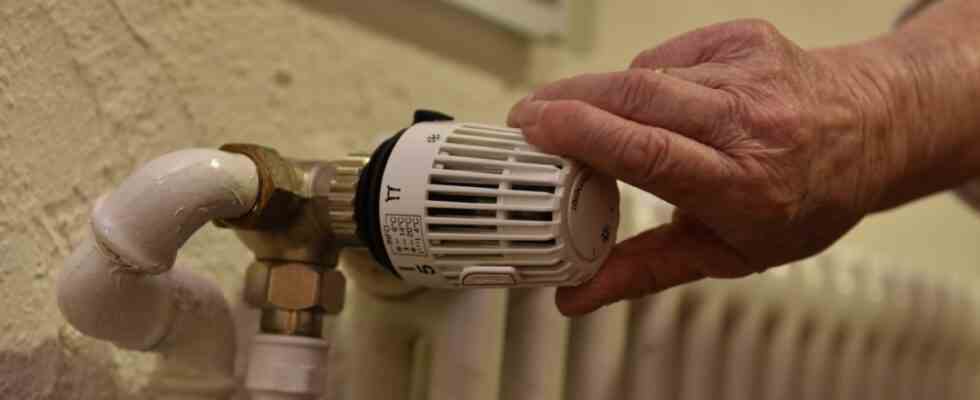If a company, which in normal times earns money from the sale of energy, issues the motto “Saving energy is the order of the day”, then that is another alarm sign in addition to the sharply rising energy prices. Initiated by politicians, Stadtwerke München (SWM) even announced the energy-saving competition “Every kilowatt hour counts” for the fall. The more gas or electricity is saved, the larger the bonus credited to customers. The exact conditions have not yet been determined. But the more than 50,000 households in Munich that receive Hartz IV benefits or social assistance will not benefit from this. Because any bonuses would have to be credited to the job center and social security office and thus reduce the state support accordingly. The legal situation leaves no room for maneuver, confirmed the social department at the request of the SZ. Economical heating behavior does not therefore pay off for recipients of Hartz IV or social assistance.
If higher advance payments for additional costs or additional payments have to be made in the annual statement for heating and hot water due to higher energy prices, recipients of state social benefits usually do not have to worry. The job center or the social security office will pay for this, provided the costs are reasonable. This vague regulation in the social security code should prevent someone from no longer taking care of their heating costs. Instructions were given in such cases up until 2013. If this was unsuccessful, after a further accounting year, the costs were only assumed to an appropriate extent.
The city now relies primarily on free energy advice
Due to the case law of the Federal Social Court, however, the administrative practice could no longer be maintained, according to the social department. According to the court, it is generally not clear whether those entitled to benefits cannot save or do not want to save. Therefore, a cut is out of the question, only a change of residence. In view of the tense housing market in Munich, however, the hurdles for this are “very high”. The social department shows this as a possible consequence, but leaves it at written instructions and the reference to free energy advice. “Monthly heating and hot water costs, any additional demands and also the costs for self-procured heating material, for example heating oil, are therefore generally recognized in full as a requirement,” explains the social department.
In return, however, any credit from the annual statement would be fully offset against the requirement. “The credit for savings in heating energy planned by the municipal utilities must also be taken into account in full,” emphasizes the social department and concedes: “There is no incentive to save heating energy due to these regulations.” The department for social affairs does not see any possibilities to create corresponding incentives: the legal regulations are clear and leave no room for manoeuvre. The city therefore relies above all on free energy advice for households with low incomes from the municipal utilities and Caritas, as well as for households with energy debts from the institute for socio-educational work.
Introducing premiums for economical heating behavior of Hartz IV or social welfare households, as the FDP has already suggested at federal level, is endorsed by the Social Affairs Department. However, the department takes a critical view of ignoring at least part of the credit after the annual statement: “A credit for heating and hot water costs is not necessarily due to economical behavior, but can also be the result of excessive advance payments being requested.” Some landlords have already increased the advance payments by 100 percent.
Social officer Schiwy calls for a legal regulation
Should the legislature introduce a premium, it must set clear guidelines as to the limit up to which energy consumption is considered economical. Social officer Dorothee Schiwy therefore wants to ask the Federal Minister of Social Affairs to allow incentives for more economical heating behavior through a legal regulation. And she wants to appeal again to increase the Hartz IV standard rate of 449 euros per month because of inflation and above all because of the sharp rise in food prices before the introduction of citizen income planned for next year.
The situation with electricity costs is somewhat different. The standard rate for a single Hartz IV household is around 36 euros per month. Assuming an average annual consumption of 1500 kilowatt hours and having the electricity price calculator of Stadtwerke München make a tariff proposal online on September 1st, the M-Strom Fix tariff costs around 72 euros per month. Recipients of Hartz IV and social assistance cannot receive a municipal electricity cost subsidy, as it serves the same purpose as the one-off payment of 200 euros decided by the Bundestag for this group of people. This amount serves as a flat-rate compensation for the additional financial burden as a result of the pandemic, but also for the current high price increases, especially in the area of energy costs, the social department announced. It is more than obvious that in many cases the one-time payment will not be enough to offset the entire additional costs.
However, the exchange program for “white goods” such as refrigerators and washing machines, which, according to the social affairs department, should come at the end of the year, gives hope that electricity costs can be saved. This is intended to replace old devices in Hartz IV and welfare households with new, energy-efficient devices free of charge.

